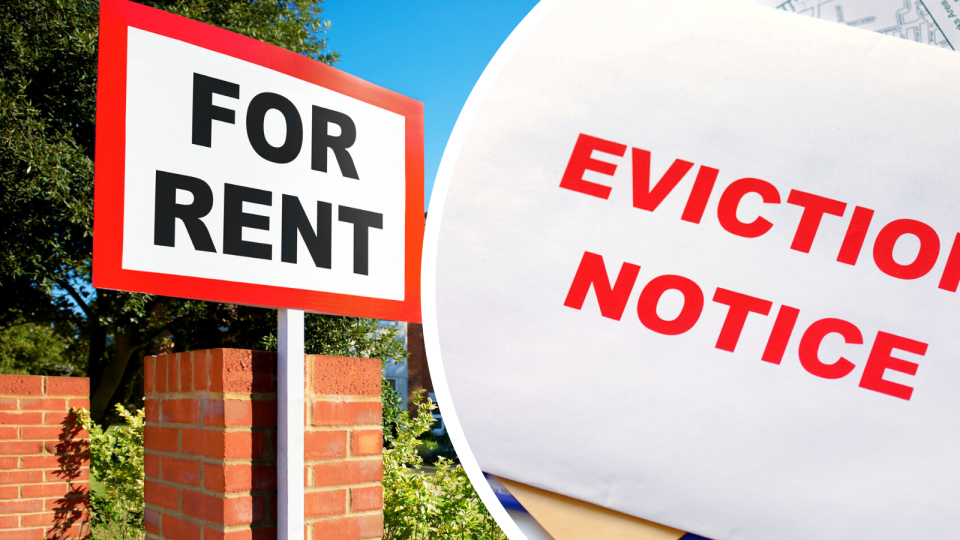States fire rent relief at struggling tenants

Three states have been quick off the mark to introduce rent relief packages for struggling tenants and landlords during the coronavirus crisis.
It follows the federal government’s announcement last week that commercial tenancies will be bound by a national mandatory code, which aims to keep tenants in properties for the duration of the lockdown measures.
Victoria gives renters, landlords $550 million boost
Victorian renters struggling to pay rent can rest easy knowing they cannot be evicted, after the state government confirmed a temporary six-month ban on evictions for residential and commercial tenants on Wednesday.
The state government fired a $500 million package at renters and landlords, including $420 million in land tax relief for landlords offering rent reductions to tenants, and $80 million for renters facing hardship due to the virus.
Eligible renters must register their revised agreement with Consumer Affairs or have gone through mediation, have less than $5,000 in savings and pay at least 30 per cent of their income in rent.
Small businesses with an annual turnover of under $50 million with a 30 per cent or more in revenue reduction due to COVID-19 can be granted rental waivers or deferrals.
The measures will be backdated to March 29.
Victorian Council of Social Service chief Emma King said more details would be necessary, however.
"It's unclear whether renters who accept a payment deferral will end up saddled with a mountain debt at the end of the pandemic,” she said. “That would be a tragic and dangerous outcome.”
Queensland unveils rent relief package
The Queensland government is offering land tax rebates and introducing measures to ban evictions for tenants unable to pay rent during the Covid-19 crisis.
Property owners cannot evict a tenant if their lease expires during the coronavirus crisis, however tenants who cannot pay rent and want to end their lease early will be able to do so, housing minister Mick de Brenni said.
The eviction freeze will apply for commercial, residential and retail tenancies.
The government will also offer a three-month rebate on land tax for 2019-20 commercial and residential property owners, followed by a three-month deferral of land tax in 2021-21 for landlords who agree to provide rent relief to their tenants.
The measures will be backdated to March 29.
NSW fires $440 million tenancy package
The NSW government has unveiled a $440 million rent relief package for commercial and residential tenants and landlords significantly affected by the coronavirus.
The NSW government's six-month support package will include a moratorium on applications for forced residential evictions due to rental arrears for households financially disadvantaged by the pandemic, a 60-day ban on notices from landlords to tenants, and mandatory negotiation and mediation.
“This policy is about protection,” NSW treasurer Dominic Perrottet said on Monday.
“Protecting tenants from being evicted due to circumstances outside their control. It protects landlords from tenants in circumstances where payment of rent is not being paid when it should be paid.”
The treasurer said the measures are “complementary” to the federal government’s measures.
What does the package mean for residential tenants?
Residential tenants who have lost 25 per cent of their household income due to coronavirus will be eligible to negotiate rent relief options with their landlord.
“I would make the point that what is really important here is for landlords and tenants to be sitting down together and negotiating an agreement through this phase,” Perrottet said.
As well as a six-month eviction ban on rent arrears, there will also be a 60-day stop on termination notices by landlords to tenants.
Eligible tenants will be protected from eviction until the Tribunal is satisfied negotiations have concluded, with any unpaid rent to accrue as arrears in that time.
However, tenants will have to repay the rent eventually, as anything unpaid will accrue as arrears during this period.
Perrottet said tenants would not be blacklisted for the accrual of rent relief.
Rent repayments for tenants whose circumstances have not changed do not change, the treasurer said.
The treasurer said tenants can find a negotiation template on Fair Trading’s website. This template will clearly set the guidelines for them to start that process.
What does the package mean for residential landlords?
Under the government’s package, residential landlords would be eligible for a land tax waiver or rebate of up to 25 per cent if they pass the savings on to tenants experiencing financial strain.
Landlords will be unable to serve termination notices on their tenants for a 60-day period.
Landlords are also unable to evict tenants for a six-month period, and must engage in negotiation with their tenants.
“The land tax threshold is $732,000 here in New South Wales,” Perrottet said.
“For those who are liable for land tax, if they provide a reduction to their tenants, then we will provide a waiver or rebate of land tax in those circumstances.
“The other important point to make is that land tax obligations will also be deferred for the next three months in circumstances where we have a business that is affected by COVID-19 and that will provide an opportunity for landlords to work through these issues with the tenants over this period of time.”
What does it mean for commercial tenancies?
Commercial tenancies will need to negotiate rent relief agreements in accordance with the code announced by the prime minister last week.
The NSW government however will move to enact temporary legislation to give effect to the code.
Similar to residential landlords, commercial landlords will also be offered a concession of up 25 per cent of their 2020 tax liability if they pass the savings on through rent reduction.
With AAP.
Make your money work with Yahoo Finance’s daily newsletter. Sign up here and stay on top of the latest money, news and tech news.
Follow Yahoo Finance Australia on Facebook, Twitter, Instagram and LinkedIn.

 Yahoo Finance
Yahoo Finance 